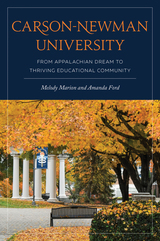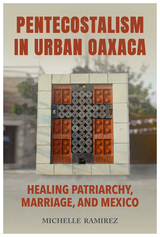
In this expertly told history, Melody Marion and Amanda Ford trace the school’s humble beginnings through two dozen presidents; the turmoil of the American Civil War, Reconstruction, and two world wars; and the contemporary scandals that have plagued the Southern Baptist Convention. Carson-Newman’s history is filled with important players, both courageous and corrupt. Many such players fought tirelessly to grow the campus and maintain a level of excellence at Carson-Newman, but the university’s history is dotted with conflict concerning women’s rights, civil rights, presidents whose questionable actions created firestorms of protest and led to their exits, and modern questions related to its Baptist affiliation.
Additionally, Carson-Newman University owes much to its Appalachian heritage, and in an excellent final chapter the authors unpack Carson-Newman’s regional identity past and present. Education in Appalachia historically has fallen behind national standards, but from its start as a seminary through its gender-segregated college days to the integrated orange-and-blue Eagles we know today, the university, with its presidents and academic body has been an agent of demonstrable gain for its students and the region. Today, as new chapters in Carson-Newman’s history are being opened, this text will serve as a record of tradition, world-class education, and lifelong learning within a Christian setting.

While the field of public management has become increasingly international, research and policy recommendations that work for one country often do not work for another. Why, for example, is managerial networking important in the United States, moderately effective in the United Kingdom, and of little consequence in the Netherlands? Comparative Public Management argues that scholars must find a better way to account for political, environmental, and organizational contexts to build a more general model of public management. The volume editors propose a framework in which context influences the types of managerial actions that can be used effectively in public organizations.
After introducing the innovative framework, the book offers seven empirical chapters—cases from seven countries and a range of policy areas (health, education, taxation, and local governance)—that show how management affects performance in different contexts. Following these empirical tests, the book examines themes that emerge across cases and seeks to set an agenda for future research. Intended for students and scholars of public administration and public policy, this book will be the first to provide a comprehensive comparative assessment of management’s impact on organizational performance.
READERS
Browse our collection.
PUBLISHERS
See BiblioVault's publisher services.
STUDENT SERVICES
Files for college accessibility offices.
UChicago Accessibility Resources
home | accessibility | search | about | contact us
BiblioVault ® 2001 - 2024
The University of Chicago Press









